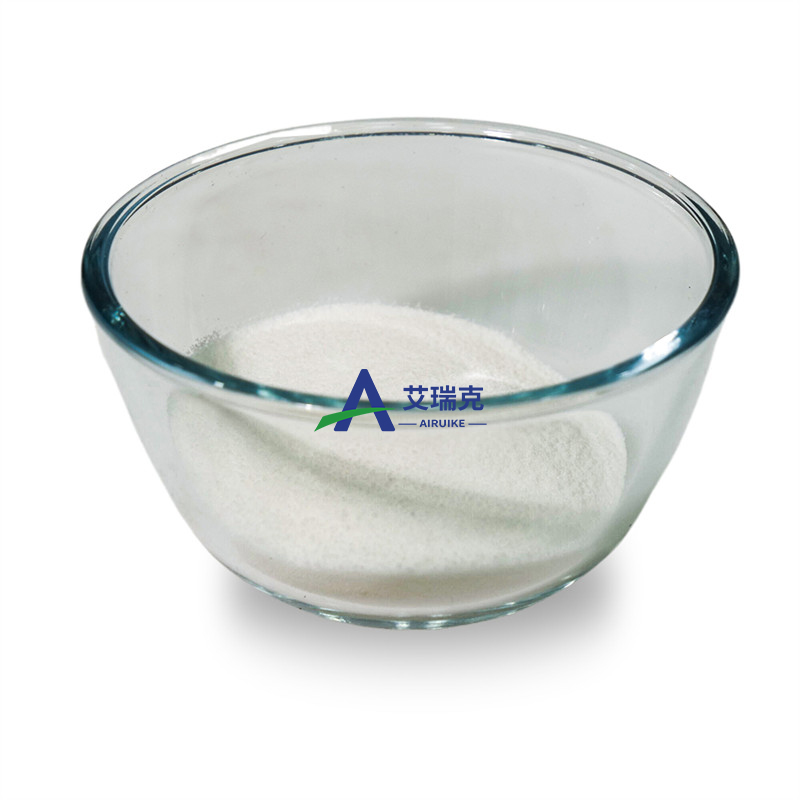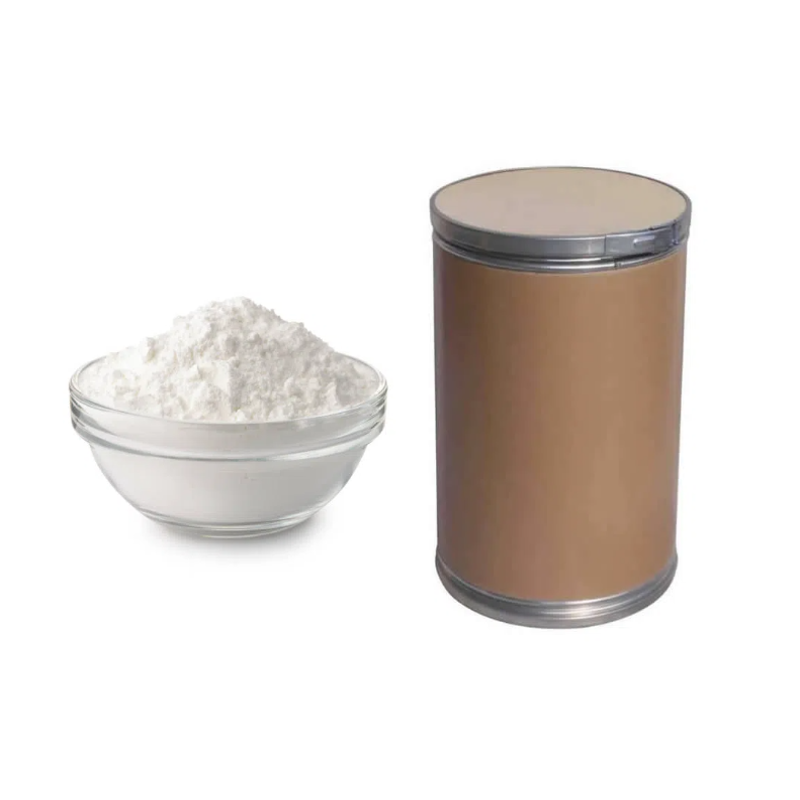-
Categories
-
Pharmaceutical Intermediates
-
Active Pharmaceutical Ingredients
-
Food Additives
- Industrial Coatings
- Agrochemicals
- Dyes and Pigments
- Surfactant
- Flavors and Fragrances
- Chemical Reagents
- Catalyst and Auxiliary
- Natural Products
- Inorganic Chemistry
-
Organic Chemistry
-
Biochemical Engineering
- Analytical Chemistry
-
Cosmetic Ingredient
- Water Treatment Chemical
-
Pharmaceutical Intermediates
Promotion
ECHEMI Mall
Wholesale
Weekly Price
Exhibition
News
-
Trade Service
"An "Medicine" Leye" is a humanistic case collection project
cooperated by Beijing Chen Jumei Public Welfare Foundation and Yimaitong.
The series of interviews with urologists will focus on the field of prostate cancer, discuss the significance of standardized diagnosis and treatment path of prostate cancer and the management of the whole course of prostate cancer to clinical patients based on real clinical needs, and highlight the research spirit and professionalism of urological oncologists
.
Wu Gexi was attacked by rhino armor, the car was wrong and the short army was connected, and the enemy was like a cloud, and the fallen warriors fought for the lead
.
With the continuous improvement of medical technology, castration-resistant prostate cancer (CRPC) diagnosis and treatment has entered the "Warring States Era", and urologists have more and more weapons in their hands
.
New endocrine therapy, chemotherapy, PARP inhibitors and other new therapies and genetic testing methods continue to enter the clinic, how to maximize their efficacy is the focus of work and the direction
of efforts under the new situation and new concept.
In this interview, we are honored to invite Professor Ye Lifu of Fujian Provincial Hospital to talk about how CRPC diagnosis and treatment can achieve another breakthrough
in the era of hegemony.
Expert profiles
Prof.
Yelev
Administrative Director of the Department of Urology, Fujian Provincial Hospital
Deputy Director of General Surgery, Fujian Provincial Jinshan Hospital
National Committee Member of Urology Branch (CUA) of Chinese Medical Association, Member of CUA Oncology Group
National Committee Member of Urologist Branch of Chinese Medical Doctor Association (CUDA), Member of Minimally Invasive and Robotics Group
Member of Endoscopist Branch of Chinese Medical Doctor Association
Member of the Standing Committee of the Urology Branch of the World Association of Chinese Physicians
Member of the Standing Committee of the Urology Branch of the Chinese Medical Equipment Association
Vice President of Urologist Branch of Fujian Medical Doctor Association
Vice Chairman of the Professional Committee of Urogenital Oncology of Fujian Anti-Cancer Association
Member of the Standing Committee of the Urology Branch of Fujian Medical Association and Deputy Head of the Transplantation Group
Vice President of Urology Branch of Fujian Strait Medical and Health Exchange Association
Editorial Board Member, Journal of Modern Urology
Guiding Light, PCWG leads CRPC definition innovation
The change in the definition of CRPC has profoundly affected the diagnosis and treatment of prostate cancer, which is of great
significance to the treatment of prostate cancer.
The Prostate Cancer Working Group (PCWG) plays a global leadership role in the origin and transformation of the CRPC definition
.
Professor Ye introduced that in 1999, PCWG1 believed that PSA≥5ng/ml may be the only evidence of
CRPC progress.
In 2008, PCWG2 thought PSA ≥2 ng/ml to determine disease progression
.
By 2015, PCWG3 no longer used PSA as the only indicator to assess disease progression, but only as the "first sign" of disease progression, and further relaxed the indicator to PSA ≥1ng/ml
.
Professor Ye added that in this year's CSCO Guidelines for the Diagnosis and Treatment of Prostate Cancer, the diagnostic criteria for CRPC have been consistent with PCWG3, in which the minimum starting value of PSA has been adjusted from 2ng/ml to 1ng/ml, and the number of tests has been changed from "3 consecutive increases of >50% from the basics" to "2 consecutive increases of >50% from the basics", which has a profound impact
on clinical work 。 The reduction of the PSA threshold can allow more patients to be diagnosed and treated in the non-metastatic stage, delaying the entry into the metastatic castration-resistant prostate cancer (mCRPC) stage, thereby improving the survival rate
of cancer patients.
Jinge Iron Horse heard the drum, CRPC diagnosis and treatment began a new journey
Almost all patients with advanced prostate cancer will progress to CRPC, and once patients enter the CRPC stage, their survival and quality of life will be seriously affected
.
Professor Ye pointed out that non-metastatic castration-resistant prostate cancer (nmCRPC) is an independent and special stage in CRPC, which means that serum testosterone is at castration level after treatment with ADT, but PSA level continues to rise, and traditional imaging methods have not found distant metastases
.
Previous studies have shown that approximately one-third of patients with nmCRPC metastasize within two years of ADT alone, progressing to the mCRPC stage, and the annual risk of disease progression increases from 34% to 74%.
Professor Ye believes that the use of new endocrine drugs such as enzalutamide, darolutamide and apatamide in the nmCRPC stage is very important
to delay tumor progression and improve the overall prognosis of patients.
At the same time, he emphasized that enzalutamide is a new endocrine drug that has obtained a "grand slam", and in China, enzaluamide has obtained indications for nmCRPC and mCRPC
.
mCRPC is the terminal stage of prostate cancer, and in recent years, the treatment "weapon" has become more and more abundant
.
Professor Ye introduced several types of therapeutic drugs commonly used in clinical practice: the first category is new endocrine drugs such as enzaluamide and abiraterone; The second category is chemotherapy drugs such as docetaxel and cabazitaxel; The third category is radium-223 for bone metastasis; The fourth category is for the PARP inhibitor olaparib carrying BRCA gene mutations, and the launch of this drug has led to a boom
in molecular typing precision treatment in the field of prostate cancer.
In addition, in March this year, the US FDA approved 177Lu-PSMA-617 for the treatment
of patients with new endocrine drugs and PSMA-positive mCRPC after chemotherapy progression.
Although the prognosis of mCRPC is not optimistic, with the global attention and investment in innovative drug research and development, it is expected to bring new hope
to patients with advanced prostate cancer.
It is worth mentioning that combination therapy has shown greater clinical benefit in patients with mCRPC, for example, in the PRESIDE study, the median progression-free survival (PFS) of enzalutamide + chemotherapy versus placebo + chemotherapy was (9.
53 months vs.
8.
28 months, HR=0.
72, 95% CI: 0.
53~0.
96; P=0.
027), and the incidence of treatment-related adverse reactions was similar between the two groups, grade 3/4 TEAE (61.
8% vs.
62.
2%) , combination therapy did not clearly increase toxicity
.
The study shows that new endocrine drugs such as enzalutamide can be used as the cornerstone of mCRPC treatment, throughout the management of patients, and the efficacy and safety are worthy of recognition
.
This combination regimen may be considered in patients who respond to enzalutamide and subsequently progress
.
Smart medical care has entered the fast lane, and medical ethics is an indispensable spiritual background
In order to achieve another breakthrough in CRPC diagnosis and treatment, in addition to carrying out more high-quality clinical research, we as doctors also need to continue to learn and broaden our knowledge
.
Professor Ye sighed that young doctors should grow into talents, read 10,000 books and travel 10,000 miles, and read more books with words and more books without words
.
On the one hand, it is necessary to have a solid medical theory, which is the foundation of
clinical practitioners.
On the other hand, they must strengthen their basic surgical skills and correct and standardized clinical thinking training, Professor Ye always believes that without virtue, there is no medicine
.
The healer practices benevolence and benevolence, benevolence first, benevolence in the back, which is the yardstick
for measuring the healer.
Reform and opening up has been more than 40 years, with the development of the economy, the increase of government financial investment, the medical and health industry has experienced great changes
.
Professor Yip recalls that decades ago there was a marked difference
between being a doctor now.
From a technical point of view, doctors used to use blood pressure monitors, stethoscopes, and thermometers to see doctors, but now doctors commonly use blood tests, B-ultrasound, CT, MRI, PET CT, PSMA PET/CT.
In recent years, the application of artificial intelligence, big data, Internet of Things and other technologies has covered many scenarios
such as disease screening, auxiliary diagnosis, and health management.
This series of progress has shortened the gap with developed countries to a certain extent, and also helped improve the efficiency of China's medical services and resource integration
.
In the past, patients and doctors had a high degree of trust, but in recent years, due to the reversal of black and white by some bad media and the lack of implementation of health education, disputes between doctors and patients have increased
.
In the face of the current complex environment, as Professor Ye mentioned at the beginning, no virtue cannot be a doctor
.
Building trust with medical ethics is the key to solving the current contradiction between doctors and patients, so it is urgent to improve the humanistic qualities of doctors
.
Expert Talk
The development and launch of new drugs is an important way to promote the change of the treatment pattern of advanced prostate cancer patients, and in the era of crowd dominance, it is urgent to optimize
the treatment plan.
Reasonable "formation" so that each "weapon" can play the maximum role is the key to prolonging the survival of
patients.
In this battle to cure diseases, we must demand ourselves to become a doctor
with solid professional knowledge and humanistic spirit.
Past Highlights
1.
Professor Zhu Yao: The revision of the guidelines is like building a giant ship that carries the patient's hope all the way forward2.
Professor Easy to find | The "growth" of the guide is accompanied by breakthroughs in diagnosis and treatment, guiding a brighter and smoother road to the future3.
Professor He Weiyang: The Development of Antiandrogenic Drugs: A Clinical "Revolution" Driven by Drug Resistance4.
Director Li Rubing: White clothes, clever hands, red heart: prostate cancer diagnosis and treatment concept and medical spirit 5.
Professor Ma Limin: "Medicine" is a long road, and the waves are surging 6.
Professor Sun Ting: From the beginning to the end, the optimization strategy of the whole process management of prostate cancer 7.
Professor Wang Jianbo: Wen Wu Shuangquan, A hundred steels into steel, the doctor's task is heavy and the road is long8.
Professor Fan Xinrong: NHT vigorous competition, mHSPC combination therapy and charge again 9.
Professor Li Yonghong: Mid-year inventory - 2022 prostate cancer memorabilia 10.
Professor Kang Lok: I saw the world and human affairs in urology 11.
Professor Pu Xiaoyong: Guide empowerment, far and stable, CUA and CSCO jointly create a new pattern of prostate cancer diagnosis and treatment12.
Professor Wang Wei | The road to medicine is long: do not forget the original intention of practicing medicine, and keep in mind the mission of doctors
Special thanks: Beijing Astellas Pharmaceutical Co.
, Ltd
Edited by Kristen
Reviewed: Shirley
Typesetting: Gardenia
This platform is designed to deliver more medical information
to healthcare professionals.
The content published on this platform cannot replace professional medical guidance in any way, nor should it be regarded as diagnosis and treatment advice
.
If such information is used for purposes other than understanding medical information, this platform does not assume relevant responsibilities
.
The content published by this platform does not mean that it agrees with its description and views
.
If copyright issues are involved, please contact us and we will deal with
it as soon as possible.







